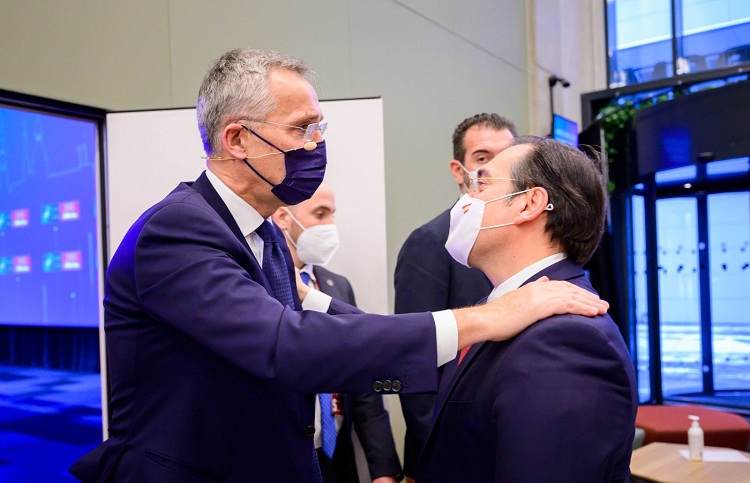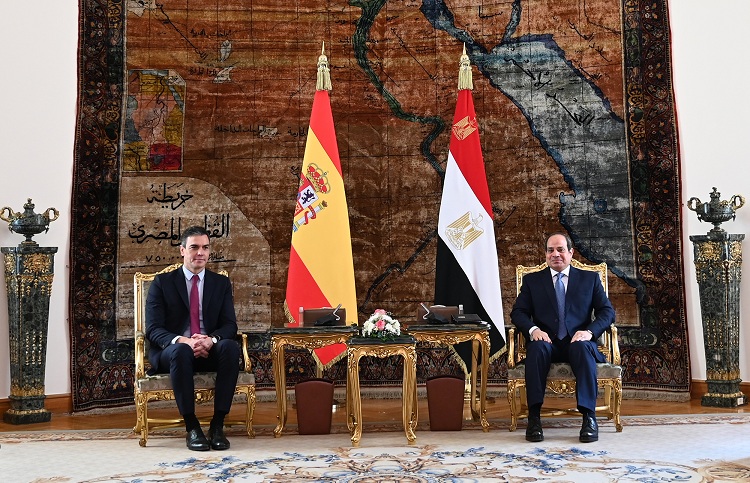The Diplomat
NATO Foreign Ministers have discussed in Riga, capital of Latvia, the next NATO Strategic Concept, to be adopted at next year’s Madrid Summit.
The Spanish Minister, José Manuel Albares, participated in this meeting, which took place between Tuesday and Wednesday and in which the main challenges of the organization were discussed in five sessions: Russia, non-proliferation and disarmament, the Alliance’s Strategic Concept, Ukraine and Georgia, Afghanistan and the Western Balkans, as well as other topical issues, such as Belarus or the recent withdrawal from Afghanistan.
During the debate on the definition of the organization’s new Strategic Concept, which took place on Tuesday afternoon, Albares defended the strengthening of the transatlantic link and called for “a greater presence of the South in NATO and of NATO in the South”.
As NATO Secretary General Jens Stoltenberg explained in Riga, the new Concept, to be approved by NATO leaders at the Madrid Summit in June 2022, should include five key elements: protecting “our values,” reinforcing the Alliance’s military power, strengthening partnerships, adopting a global perspective and building NATO as the institutional link between Europe and North America. “The Strategic Concept will reflect the new security environment, reaffirm our unity and our values and drive our continued adaptation,” he assured at a press conference. “It is the blueprint for the future of our Alliance and how Europe and North America will continue to stand strong together in NATO,” he added.
Yesterday, the ministers discussed the situation in Ukraine and Georgia, in the presence of their respective foreign ministers, Dmytro Kuleba and David Zalkaliani. According to Stoltenberg, the allies must remain vigilant in the face of “Russia’s continued aggressive and destabilizing actions against its neighbors and its military buildup in and around Ukraine.” “The ministers made it clear that any future Russian aggression would have a high price and serious political and economic consequences for Russia,” he continued.
On the other hand, NATO foreign ministers addressed Afghanistan as a critical reflection on the “lessons learned” during the twenty years of allied presence, and presented a final analysis of “Conclusions and Recommendations”, highlighting the massive evacuation carried out last summer after the victory of the Taliban, “of which the Spanish government was a great example”, as indicated by Foreign Affairs.
The last meeting, attended by the High Representative of the Union for Foreign Affairs and Security Policy, Josep Borrell, was devoted to the Western Balkans, against the backdrop of the institutional crisis in Bosnia and Herzegovina and the recent tensions between Serbia and Kosovo.
On the other hand, Albares told Efe news agency yesterday that it would be “excellent news” if a woman were to become the next NATO secretary general in 2022. “That it would be a woman as the next secretary general would be excellent news, that it would be a member of the European Union, too,” he said after the meeting of foreign ministers. Stoltenberg concludes his term on September 30, 2022, so in the coming months the allies will have to negotiate the name of his or her successor.







